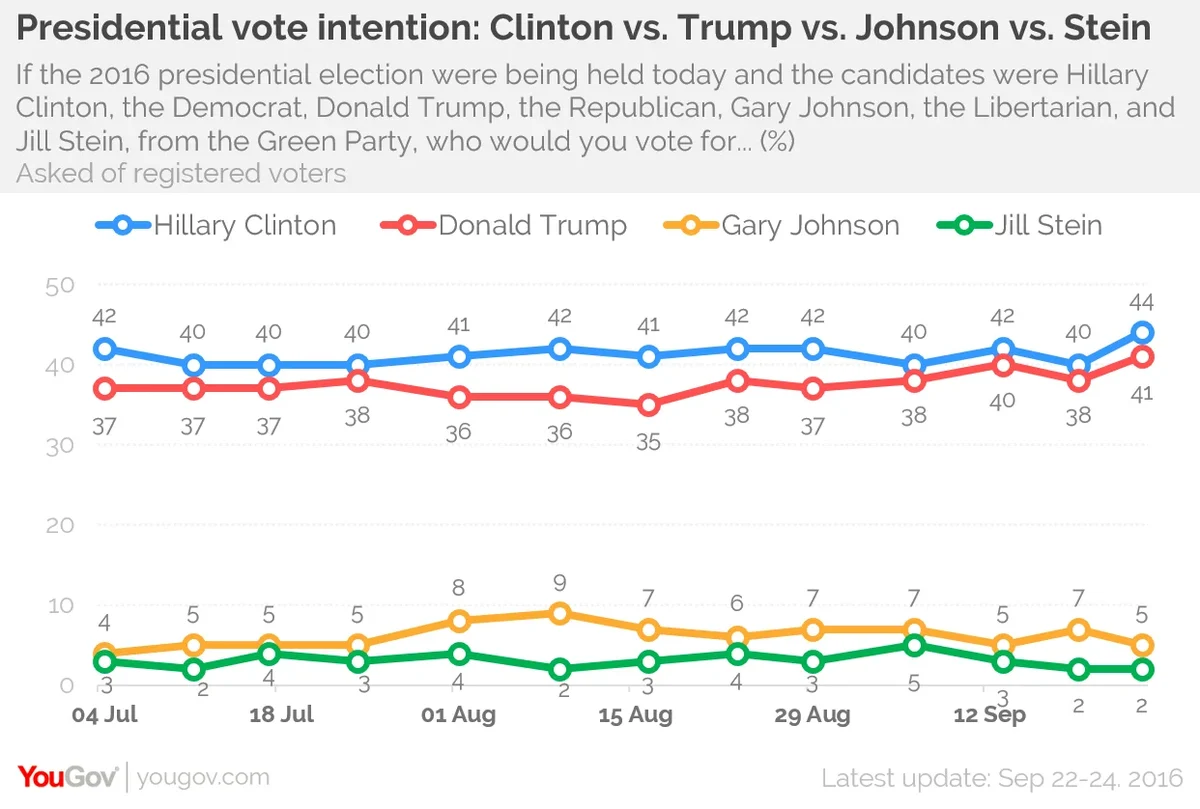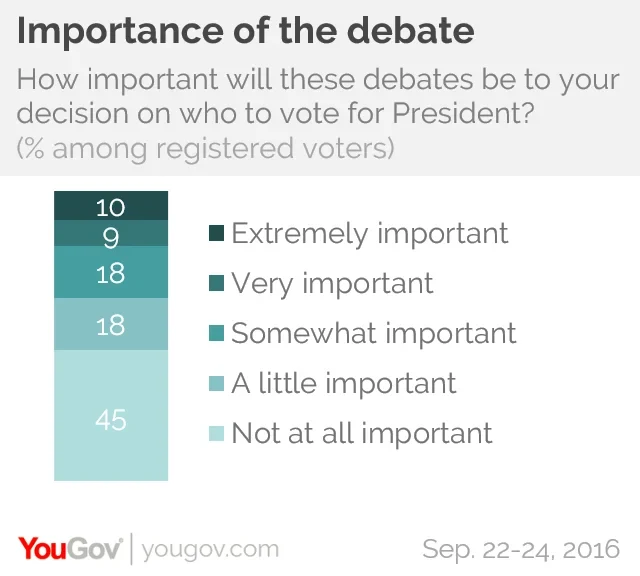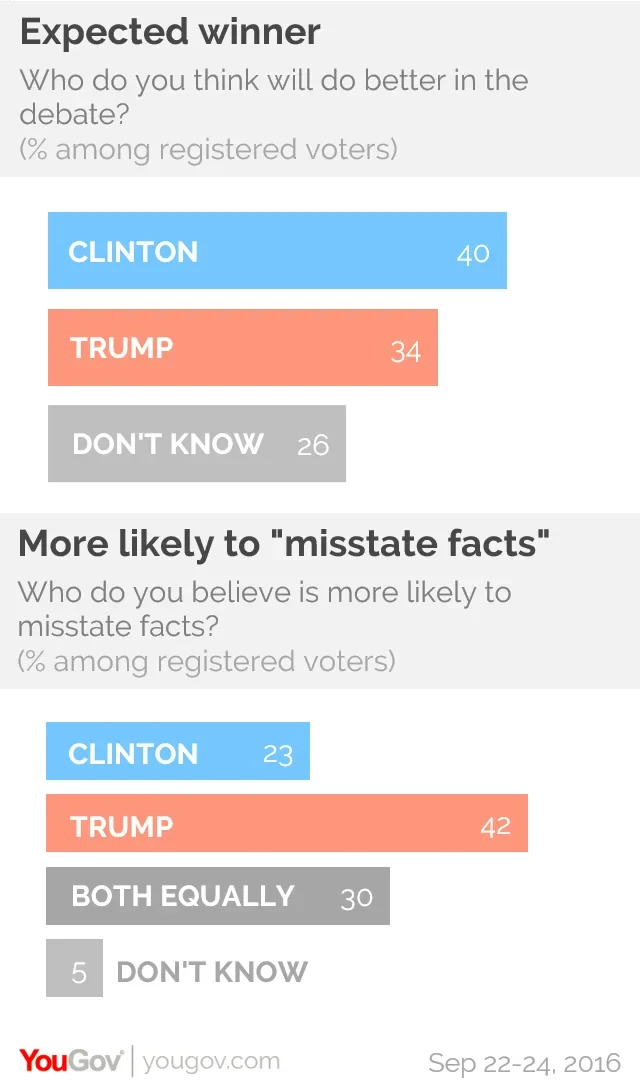Few voters expect the debate will change their minds about who to support
Democratic nominee Hillary Clinton maintains her narrow national lead over Republican Donald Trump in the latest Economist/YouGov Poll, as the two candidates – and the public – prepare for the first presidential debate of 2016. It’s a debate that voters are very interested in, though relatively few say it will be very important to their vote – perhaps not surprising when 85% of voters already say they have a good idea who they’ll vote for and only 11% admit they are still making up their minds.

Clinton now has the support of 44% of registered voters in the four-way contest, Trump the votes of 41% (when those supporting another candidate are asked to choose among the both major party candidates, the overall results become 48% Clinton and 44% Trump). Clinton leads among women, among those under the age of 45 and with those whose family incomes are $50,000 or more (though it should be noted that the race is close among the more than one in ten voters who refuse to state their incomes; Trump holds a three-point edge with this group).
There is little difference in the level of support partisans give to their party’s nominee this week: 81% of Democrats will vote for Clinton, 82% of Republicans for Trump. More of Vermont Senator Bernie Sanders’ primary supporters are now moving towards Clinton: this week, 70% of them will vote for her in the four-way race, up 13 points from last week.
The small Clinton edge among registered voters has been consistent over the last month.
The debate is, as might be expected, on voters’ minds. But it might not be decisive.
- Sixty-seven percent of registered voters expect the debates this year to be more interesting than usual.
- Nearly half claim they definitely will watch all of it. But far fewer (22%) of those not yet committed to the major party candidates (and potentially moveable) say they will definitely watch.
And relatively few overall think the debates are important to their votes. Nearly half claim the debate won’t matter at all. One in five describes it as “extremely” or “very” important. And those not currently supporting Clinton or Trump are no more likely to say they debates matter.

In some previous elections, more voters claimed the debates would matter. Four years ago, with an incumbent running for re-election, slightly more of the likely voters interviewed in a Politico/George Washington University Poll said the debates would matter, while fewer claimed they wouldn’t matter at all. In this Economist/YouGov Poll, far more voters describe a candidate’s position on each of ten issues as “very” important to their vote than said that about the debates.
Despite the fact that since her bout with pneumonia, fewer than half (45%) of registered voters believe Clinton is in good enough physical condition to serve effectively for the next four years, she is still seen by more as likely to perform better than Trump in the debate – and seen that way by the public overall, by registered voters, and by those who expect to watch the debate.

Nearly twice as many believe Trump is the candidate more likely to misstate facts during the debate as name Clinton. Clinton supporters think it is the moderator’s job to correct those errors; Trump voters say the candidates should do that themselves.
Although there is little evidence in this poll that the debate will change minds, it can affect the enthusiasm voters feel for their choice. That is one area where Trump has a lead: half (51%) of his voters describe themselves as enthusiastic about their choice, an opinion just 38% of Clinton voters hold that opinion about her.









